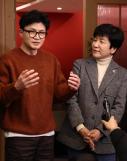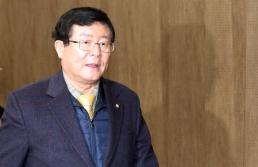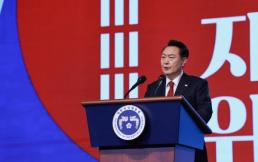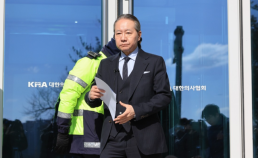Industrialization would be the word to best describe the modern history of Korean society after the liberation from Japanese colonial rule.
The life of Ho-am is literally in parallel with Korea’s representative corporate Samsung and symbolizes the process of industrialization in Korean peninsula.
In the process of putting Samsung on the list of world’s top leading companies, his philosophy and management with vision built the foundation for Korean economy to grow into the 9th largest industrial country in the world in spite of the barren environment after Korean War.
He is a pioneer of the Korea financial world, who strived in leading the rapid growth of Korean economy, into the ranks of developed countries.
In commemoration of the centennial of Ho-am’s birth, The Asia Business is going to release a series of 20 articles which cover the life of Ho-am and his philosophy along with management DNA gene that is inherited throughout the Samsung group. –Ed.
The year 2010 marks the 100th birth anniversary of Samsung Group founder Byun-chull Lee. His personality is well-presented in his penname Ho-am, which means filling up a space with clear water as lakes do and being unshakable as a large rock.
At the age of 29, Ho-am set up Samsung Trading Company in Daegu on March 1, 1938 after two months traveling from Busan to Pyeongyang through Shanghai. He made handsome money by managing a variety of business ventures of rice mills, transports, and real estate in Masan, after returning back from Tokyo where he studied Economics at Waseda University.
But, Ho-am did not seem to take on a modern aspect as an entrepreneur before the trip.
He founded a joint rice mill with common investment with his acquaintances in the Spring of 1936, however, the aftermath of the unexpected China-Japan War forced him to go into liquidation.
Then Ho-am had to fold the business due to his immature short-sight on business only looking for money-making opportunity and leading him to speculation, which is quite different from him that we appreciate as of today.
He once himself called such an experience painful but precious lesson for future business.
“Businessmen first should have insight on changes in both local and international community, second abandon the reckless greed and appreciate their own ability and limit thoroughly, third shun speculation only looking for luck, fourth make the most of intuition, and last but not the least prepare for additional scenarios so that one can have another option in case of crisis,” he said.
Failure in business in the early days played a critical role in founding his management ethics later years.
Right after folding the businesses, Ho-am hit the road to see the world and understand the market outside for 2 months. He realized the urgent need to do business looking for wide open opportunities outside of small Korean peninsula by witnessing the brutal reality in East Asia going through turbulence due to Sino-Japanese war.
However, there was not much to do for a young entrepreneur from the doomed country. So he decided to go for trading after consideration, given that the relatively small amount of capital is needed to start the trading business and supply for stockfish and vegetable was insufficient in Manchuria under the Japanese rule. A colony was a sort of niche market for a young businessman.
Then, along came the Samsung Trading Company which was founded with a capital of 30,000 won in Seomun market with well-connected transportation and easy access to fresh fruits and vegetables.
In relation to the reason to pick out Samsung, which means three stars or Tri-Star, as the name of company, he has explained that the number 3 is our people’s favorite number and star always shines in the clear sky above and lasts forever.
Since the establishment, his company Samsung grew into the mega multinational company with an asset of 3.18 trillion won and sales amount of 1.91 trillion won in 2008. Total amount of sales by Samsung accounts more than 18 percent of South Korea’s gross domestic production and takes 20 percent of the national trading in total.
In particular, its flagship subsidy Samsung Electronics recorded 136 trillion won in sales and 10.9 trillion won in operation profit. Samsung Electronics is one of the world’s largest electronic companies with 21 trillion won worth in brand value.
What makes Samsung upgrade itself from No.1 company in Korea for the last 50 years to the world’s leading multinational corporate, despite the drastic transformation with liberalization, war, coups, and revolution in the country?
Now, the success gene in Samsung is going to be revealed by searching Ho-am’s leadership and entrepreneurship with respect which came out every crisis he faced throughout the life.
아주경제= 신기림 기자 kirimi99@ajnews.co.kr
(아주경제=ajnews.co.kr) 무단전재 배포금지
©'5개국어 글로벌 경제신문' 아주경제. 무단전재·재배포 금지


![[르포] 중력 6배에 짓눌려 기절 직전…전투기 조종사 비행환경 적응훈련(영상)](https://image.ajunews.com/content/image/2024/02/29/20240229181518601151_258_161.jpg)



